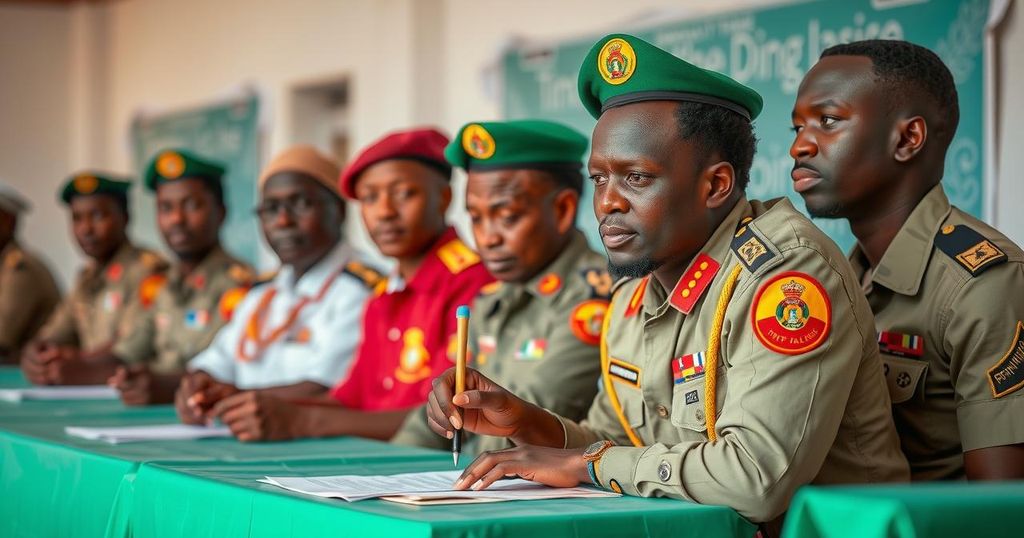Chad’s General Election: A Step Towards Democracy or A Mere Illusion?
Chad held a general election aimed at ending military rule, but voter turnout was only 38 percent due to an opposition boycott. President Deby called it a “historic day,” while many voters expressed skepticism about the election’s integrity. The atmosphere was characterized by political distrust amid calls for meaningful change.
Chad recently held a general election, touted by the government as a pivotal move towards ending three years of military rule. Despite this declaration, voter turnout was disappointingly low, with reports indicating only 38 percent participation. The opposition, urging an election boycott, asserted that the election results had been pre-determined. In contrast, President Mahamat Idriss Deby Itno encouraged citizens to vote, deeming the day “historic.” Opposition leader Succes Masra claimed that a significant portion of voters heeded this call to abstain from the polls, expressing skepticism regarding the integrity of the electoral process. Among the electorate, opinions varied; some shared a sense of futility regarding their vote, while others sought meaningful change amid ongoing socio-economic challenges.
The general election in Chad marks a significant moment in the country’s political landscape following a military takeover in 2021, which saw President Mahamat Idriss Deby Itno ascend to power after his father’s long-standing rule. This election serves as a critical juncture in demonstrating the government’s commitment to transitioning Chad to a democratic state. However, the atmosphere surrounding the election has been marred by accusations of electoral fraud, calls for boycotts from opposition parties, and a general sense of apathy among voters, raising questions about the legitimacy of the electoral process and the future of democracy in Chad.
In conclusion, the recent general election in Chad has laid bare the complexities surrounding the country’s attempts at democratization. While the government presents the election as a necessary step towards civilian rule, the low voter turnout and persistent calls for boycotts from opposition groups reflect significant distrust in the electoral process. Moving forward, Chad faces the challenge of addressing these democratic deficits while responding to pressing social issues affecting its populace.
Original Source: www.myleaderpaper.com




Post Comment